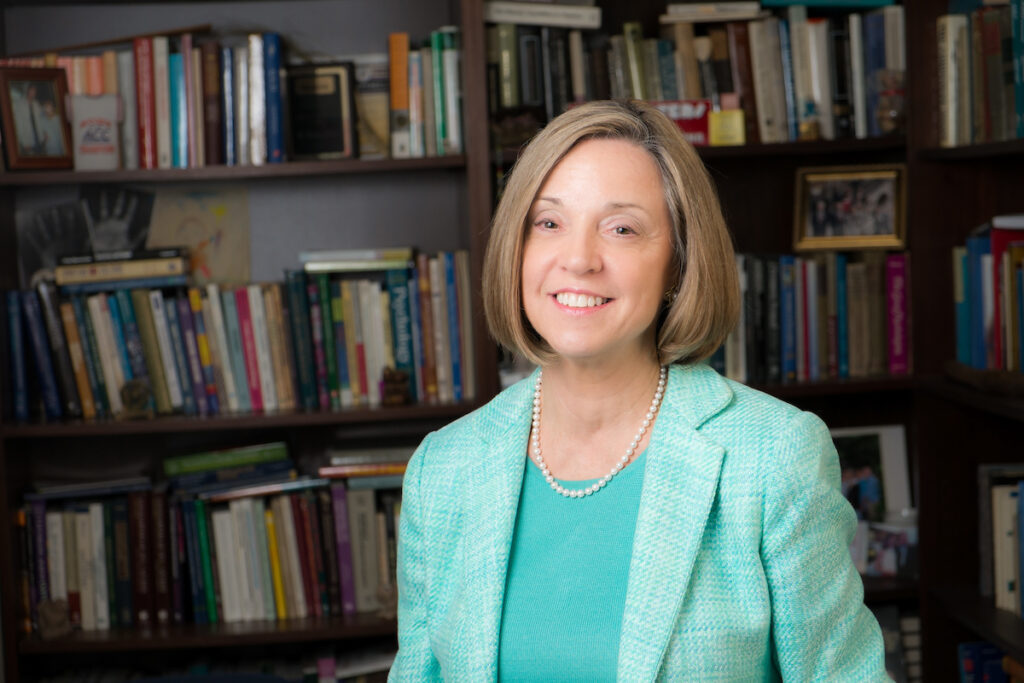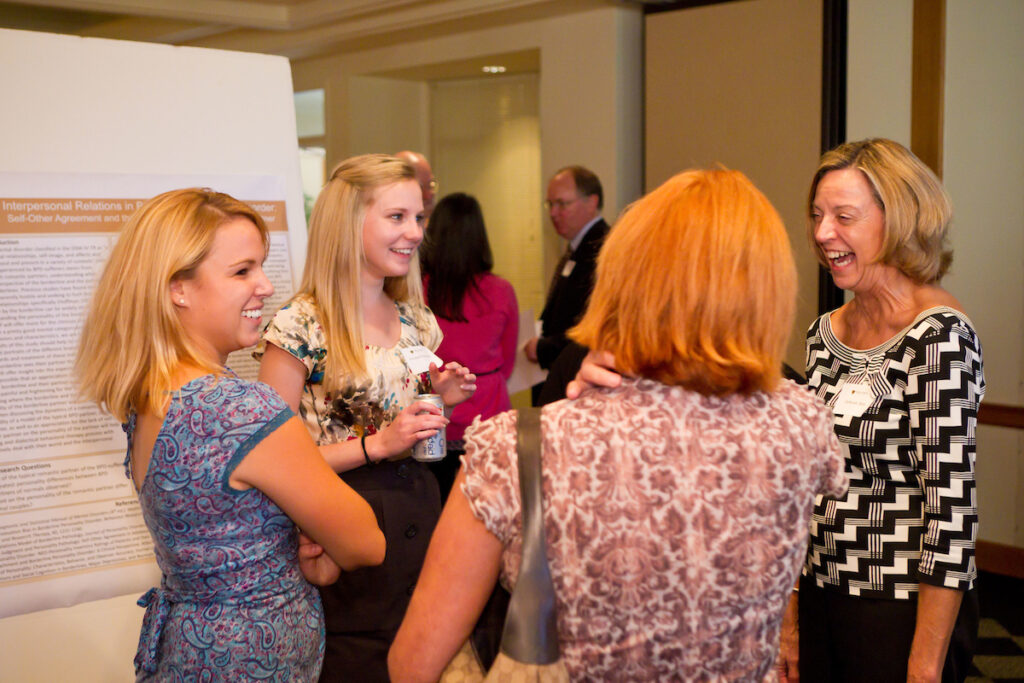Teacher-Scholar Legacies: Debbie Best

By Christy Buchanan, Chair & Professor of Psychology
It’s hard to imagine Wake Forest without Debbie Best. Simply put, Debbie is a Demon Deacon through and through. Those of us who work with her are regularly reminded of her legacy at Wake Forest when we run into alumni and community members who, once informed that we work in the Psychology Department, ask after Debbie Best and speak fondly of her.
Debbie received her B.A. and her M.A. at Wake Forest. Although she had to leave town to get her doctorate, she returned as soon as she could – while still working on her doctorate – to teach at WFU. She has been a faculty member at Wake Forest since 1972, for a tenure of more than 50 years. Over those years, she has been a leader in teaching, research, and service. She served as Chair of the Department for eight years, and Dean of the College for four. There is little wonder why it is that everyone knows her; her influence is pervasive.
It is very hard to sum up a 50-plus-year career legacy, but one way to try is to note that Debbie has “won all the awards!” She is a recipient of WFU’s Excellence in Teaching Award (1984), Excellence in Research Award (1986), the Schoonmaker Prize for Community Service (1994), and was selected as the Hubert McNeill Poteat Lecturer in 1999. In 1997, she was named the William L. Poteat Professor of Psychology. She received the Award for Outstanding International Contributions to the Psychology of Women and Gender from the American Psychological Association’s Division 52 in 2017. She is a Fellow in American Psychological Association and the Psychonomic Society, and an Honorary Fellow in the International Association for Cross-Cultural Psychology (IACCP), where she served as Treasurer, President-Elect, and Past President.
Colleagues describe her as a person who provides the perfect combination of high expectations and support for faculty, staff, and students alike. One faculty member commented: “The ability to provide a nurturing atmosphere with space to develop in the way that best fits me has always been a hallmark of our department, and Debbie gets a lot of the credit for developing this atmosphere.”
Another faculty member expressed similarly that “I see Debbie being her students’ strongest advocate and encourager while also expecting their very best in what they achieve.” Colleagues in psychology expressed this sentiment repeatedly and added that her insight and support when handling difficult situations has been invaluable. “She perfectly blends high expectations for students with deep compassion and empathy for students’ well-being and difficulties … she has always been willing to offer advice about handling thorny situations with students, and to tackle problems herself when appropriate … (students) have benefitted enormously from her wisdom, compassion, and ability to navigate challenging situations.”
Faculty have also benefitted from this wisdom, compassion, and ability to navigate challenging situations; many expressed appreciation for her support, ranging from award nominations to active professional and personal support. One faculty member recounted: “Debbie, in all of her developmental wisdom, had a very particular baby/child development book she wanted to give us (when we had our first child). But it was no longer available in mainstream outlets. So she had to special order it – and she did. It arrived a little bit after (the baby’s) birth, and Debbie brought it by the house at once, so we would have all the information we needed as soon as possible. I’ve always thought of this as illustrating both Debbie’s professional insight and rigor (she refused to gift us a lesser book!) and her thoughtfulness.”

Debbie will especially be remembered for her hand in creating and sustaining the department honors program over her career. In the words of one colleague, Debbie’s “devotion to the Honors program has been central to her identity in the department … and I really appreciate her commitment to maintaining that program for so many years.” Due to Debbie’s leadership and mentorship, “many cohorts of students in our honors program have graduated with a first-class education, an incredibly strong foundation in psychology, and people who believe in themselves and aspire for greatness.”
Debbie was instrumental in Psychology’s move from Winston Hall to Greene Hall; she spent countless hours with architects and with faculty designing the wonderful space that the department enjoys today. Her research has contributed in important ways to a variety of literature, including the development of gender concepts and stereotypes in the United States and internationally; attitudes toward aging and disability; and the development of memory and executive function in young children and older adults. Her scholarly influence extends beyond her many journal articles, books, and book chapters to the thousands of manuscripts she has reviewed and molded throughout her career, most notably as Consulting Editor, then Associate Editor, then Editor in Chief, of the Journal of Cross-Cultural Psychology continuously from 1989 through the present day. She has served WFU and the profession extensively throughout her career, and she is an active and influential member of the Winston-Salem community, including giving generously of her time and expertise to multiple nonprofit boards.
For all these reasons and more, Debbie has been a model for her colleagues, “a standard of comparison to aspire to professionally.” She will be missed, but her mark on the department and on Wake Forest will remain long into the future.

